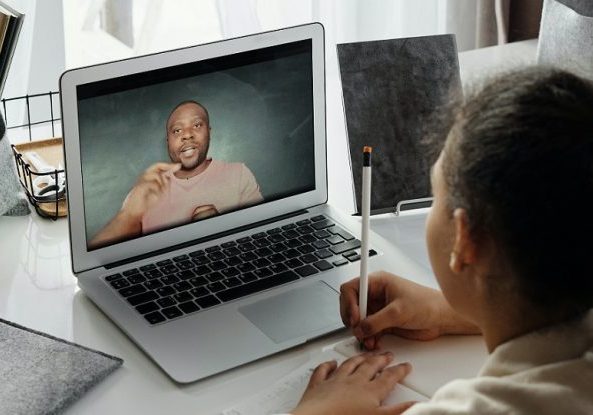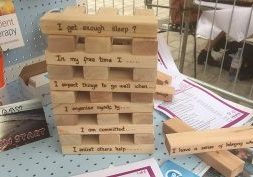Achieving a resilient return to school
Many readers of our blogs, alongside many of us at the CRSJ, Boingboing and the wider Resilience Revolution, will be thinking, and indeed fretting, about how to ensure that children return to a resilient environment in school this summer. For sure, these times are very unusual with no easy blueprint telling us all what to do next.
However, it is worth looking at what research says about the kind of context we are in now. We wanted to underline the potential for the transformational system change that can come about from such a population-level disruption. Studies on education after hurricane disasters in south coast of USA suggest ways to facilitate that. For example, Howat et al., 2012 highlight the importance of communication with the wider school and local community to aid recovery, ensuring voices are heard and needs are met (including longer term mental health needs), and embedding the closer links and relationships between school and community that often arise from situations.
And it is worth taking on board Jacki Redpath’s view, a community worker in the Shankill area of Belfast. He says, “It’s not what happens during the crisis, it’s what happens next.” He has extensive experience of working with communities through very tough times. All of this is particularly crucial for what happens next in the lives of children who face the most challenges, including some of our own Boingboing kids.
A quick recap of a key principle in our Academic Resilience Approach (ARA): a resilient climate in school comes from involvement of everyone in the community. During the partial lockdown of schools in the UK there have been many excellent examples of schools working with other organisations – local businesses and charities – to get food on the table and children educated. Parklands School in Leeds, for instance, created a Kitchen Hub with grab bags every day, working with the Junk food Project and a local private school. Tonyrefail Community School in Wales worked with local businesses and the rugby club to deliver packed lunches to families who have been furloughed or become unemployed. Surrey Square Primary in London had help from former families who remain vulnerable but were willing to use their expertise to find ways to reach out to families the school were finding hard to contact. This is exactly the sort of activity that the ARA advocates, the readiness to address basic needs so that children are able to learn, and enlisting help from existing organisations. As Mei Lim, a director at Reach Children’s Hub, says, to address disadvantage, “a good school is necessary but not sufficient.” Maintaining connections across the system might be the key to a robust recovery – possibly even bouncing forward.
Schools around the world have so far demonstrated extraordinary resourcefulness and flexibility; school staff have adapted to the crisis, learning new technical skills, teaching in school on rotas, checking in with vulnerable pupils and creatively adapting activities for pupils at home. Many schools in the UK have a triage system created from making records of weekly calls to each child and daily calls to vulnerable pupils. As parents and/or carers some of us have been on the receiving end of this. Chris Dyson, headteacher at Parklands Primary has spoken of stronger trusting links made with families whom they have been able to support. For this they have used their knowledge of families to draw in the newly vulnerable, acting on information about children which has come to light as a result of welfare calls.
“We are in the foothills of this journey”, says Jacki Redpath. However, as schools look to the future it is important to sustain what has been achieved. This is so that we can then mitigate the worst and indeed take a chance to reset and, dare we say, fight for a new vision of education? Inequalities have been evidenced through successive research now for years in the UK (EEF, 2018; Education Policy Institute, 2020). Some of us writing this blog, from the CRSJ, Boingboing and the wider Resilience Revolution, have personal experience of these inequalities going back decades, and for others of us they much more recent as we try to support our children at the moment. This is not just the attainment gap for pupils from disadvantaged backgrounds, the unconscious bias in predicting grades and an estimated 700,000 children not having access to internet etc. It is also about the lack of food, and the stressful home environments, which make being in charge of yourself in class so you can knuckle down and learn, what psychologists call ‘self-regulation’, harder for some pupils.
There have been some uneven attempts to address this. One example under lockdown has been the promised provision, by government, of digital equipment and data allowances to families that don’t have them. In the Resilience Revolution we have taken this up ourselves anyway. We have made sorting this stuff out an absolute priority so that no young person is left out of being a co-leader because so much of what we are doing now has gone online. We are pleased we did this, as children and young people need to be digitally connected for school work, let alone for getting involved in important things happening outside school, like the Resilience Revolution. Unfortunately only about 5% of vulnerable children invited to attend school throughout the partial lockdown have been able to attend, and according to a Teacher Tapp survey, which uses scientifically weighted surveys of 8,000 teachers to take a snapshot of the profession, teachers in the least advantaged secondary schools are only having 8% of school work returned. No doubt there will be significant “learning loss”, especially for the most disadvantaged pupils when they begin returning to school.
However, we believe for many children and young people it will be most helpful for them to play and reconnect before they get back to full on schooling. This is because some children will be experiencing loneliness and isolation after being required to stay at home, some will not have had any contact with peers because of their age or lack of technology. There are many social and emotional benefits of play and socialising with peers, particularly for our children who have had a tough time during lockdown. The United Nations Educational, Scientific and Cultural organisation (UNESCO) has issued guidelines drawing on experience of education during crises around the world, including the Ebola outbreak 2014-16. We’re not surprised to see that UNESCO suggest prioritising social and emotional education for staff and pupils to meet the current challenges, so that children will be ready for wider learning.
The Academic Resilience Approach draws from evidence that learning will be more profound if pupils feel connected to their school. Having their basic needs met, a vocabulary to recognise and express their feelings, and a sense of their place in this unfolding Covid-19 journey is crucial. All of this, we know from our experiences as members of the CRSJ, Boingboing and the wider Resilience Revolution, is especially hard for more disadvantaged young people to get their heads around. Many of our young people in Blackpool have found regular one-to-one contact with teaching / support staff helpful, including emails, texts, phone calls, video chats, and personalised letters. They have enjoyed the emotional support from staff checking up to see how they are doing, as well as extra support with schoolwork where needed.
Despite recent sloganeering claiming that ‘we are all weathering the same storm’, we know that we are however not all in the same boats. Some pupils will return to school having had a particularly stressful experience at home. Others will find it more stressful having to return to school. Some may be bereaved, or hungry, or homeless, and some will find the new conditions of a socially distant school extremely challenging and maybe even unbearable. Of courses, school staff will have their own worries about their families and their futures, combined with health concerns. If they aren’t properly supported themselves, these worries could, as Kate MacAllister from Crisis Classroom explains, radiate out of them like lighthouses, potentially increasing pupils’ anxiety. There is evidence from the Carnegie UK Trust and Joseph Rowntree Foundation that having the chance to be kind is important for wellbeing, and we think that all children should be given opportunities to do something for others, even if they are having their own tough time. Everyone in the school community can impact the culture and the recovery.
British Secretary of State for Education, Gavin Williamson, has promoted the reopening of all primary schools in England before the end of the summer. He has emphasised the huge benefits for vulnerable children of being in school. As Michael Tidd, a headteacher in Sussex, put it, “I very much look forward to the inevitable substantial increases in funding for children’s social care, mental health services and family support that match their concerns.” The government’s commitment to vulnerable young people would be more credible if they reinstated the rights of looked after children removed by the Coronavirus bill. At the CRSJ, Boingboing and the Resilience Revolution we’ve written an evidence report for a Parliamentary Select Committee on the disproportionate effects of Covid-19 on people with disabilities. In Scotland and Northern Ireland the plan is for more pupils to return in August, and in Wales the decision has not yet been taken. We’ve been asking our young people how they have experienced working from home. They have enjoyed fun activities as a good distraction. Specific activities mentioned included PE and exercise, arts and crafts, music, educational games like Time Tables Rock Stars, board games and more. They have asked for more “silly things not to do with work”, like class competitions and challenges to help avoid boredom.
Notwithstanding the efforts of schools to promote learning at home, evidence suggests that education in school, socially produced and relational, is more effective than online learning and worksheets, even for young people who are more advantaged in life. As teacher, Mark Enser, says in the TES, the magic of the classroom comes from teachers picking up non-verbal cues, changing the pace of the lesson, identifying pupils who may have more to add or whose body language seems to suggest confusion. Young people in our CRSJ / Boingboing / Resilience Revolution community also report concerns that the loss of casual interactions with others has reduced their friendship circles because most connection with others has to be intentional.
A return to school would be beneficial for most pupils if the principles of resilience were incorporated into school planning. A particular focus on changing the odds for those who have been worst affected by the consequences of the pandemic and lockdown is urgently needed. It is also important that young people who need to remain shielding at home are not forgotten, and schools consider how to recreate a sense of belonging and improve their chances of not being further left behind. This is about so much more than sending them work.
The complexity of what schools are being asked to do requires really joined up thinking and a joined up response. We have been creating some resources for schools which draw on the evidence about resilience and positive mental health. They offer practical suggestions for creating a resilient climate in school, for example our Tips for staff resilience during Covid-19. Keep an eye on our website for these and our newsletter.

